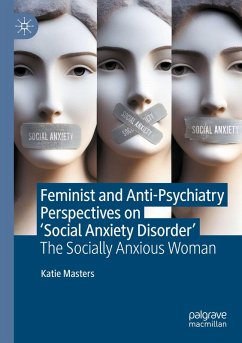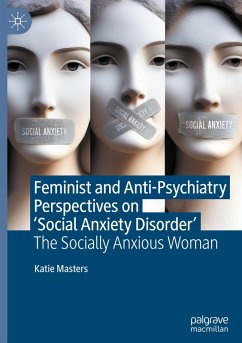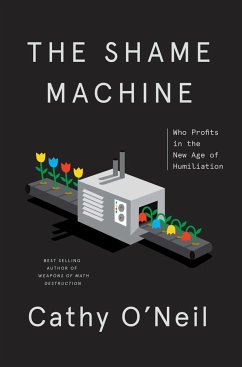
Pathology and the Postmodern
Mental Illness as Discourse and Experience
Mitarbeit: Fee, Dwight

PAYBACK Punkte
36 °P sammeln!
`This is a wonderful volume, powerfully written, timely, insightful, and filled with major pieces; the passion, intellectual rigor and sense of history found here promises to shape this field in the decades to come. This volume sets the agenda for the future' - Norman K Denzin, University of Illinois`A beautifully crafted manuscript which re-invigorates the rather stale debate between the traditionalists and the anti-psychiatry schools of thought.... For all those working in mental health arenas the journeying through this text will be highly rewarding indeed. Stick with it.' - Mental Health C...
`This is a wonderful volume, powerfully written, timely, insightful, and filled with major pieces; the passion, intellectual rigor and sense of history found here promises to shape this field in the decades to come. This volume sets the agenda for the future' - Norman K Denzin, University of Illinois
`A beautifully crafted manuscript which re-invigorates the rather stale debate between the traditionalists and the anti-psychiatry schools of thought.... For all those working in mental health arenas the journeying through this text will be highly rewarding indeed. Stick with it.' - Mental Health Care
`This is a book which will apeal to those interested in theoretical debates rather than to practitioners who may find it heavey weather if they have not had the time or resources to engage with what are often quite difficult and often dense writings' - British Journal of Social Work
`This book.. present[s] a clarity that is vivid.... Thisbook would be a good place for psychiatrists to start' - British Journal of Psychiatry
Pathology and the Postmodern explores the relationship between mental distress and social constructionism using new work from eminent scholars in the fields of sociology, psychology and philosophy.
The authors address: how specific cultural, economic and historical forces converge in contemporary psychiatry and psychology; how new syndromes, subjectivities and identities are being constructed and deconstructed in technological, culturally mediated and hyper-reflexive contexts; and what new critiques of positivism and new understandings of `pathology' seem viable, given these still emerging scenarios.
Building upon work in such areas as labelling theory, feminist studies, linguistics, and post-structuralism, the twelve chapters engage the cultural, historical and political conditions that should be implicated in our understanding of contemporary mental suffering.
`A beautifully crafted manuscript which re-invigorates the rather stale debate between the traditionalists and the anti-psychiatry schools of thought.... For all those working in mental health arenas the journeying through this text will be highly rewarding indeed. Stick with it.' - Mental Health Care
`This is a book which will apeal to those interested in theoretical debates rather than to practitioners who may find it heavey weather if they have not had the time or resources to engage with what are often quite difficult and often dense writings' - British Journal of Social Work
`This book.. present[s] a clarity that is vivid.... Thisbook would be a good place for psychiatrists to start' - British Journal of Psychiatry
Pathology and the Postmodern explores the relationship between mental distress and social constructionism using new work from eminent scholars in the fields of sociology, psychology and philosophy.
The authors address: how specific cultural, economic and historical forces converge in contemporary psychiatry and psychology; how new syndromes, subjectivities and identities are being constructed and deconstructed in technological, culturally mediated and hyper-reflexive contexts; and what new critiques of positivism and new understandings of `pathology' seem viable, given these still emerging scenarios.
Building upon work in such areas as labelling theory, feminist studies, linguistics, and post-structuralism, the twelve chapters engage the cultural, historical and political conditions that should be implicated in our understanding of contemporary mental suffering.














